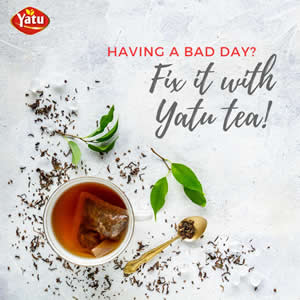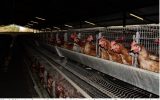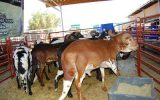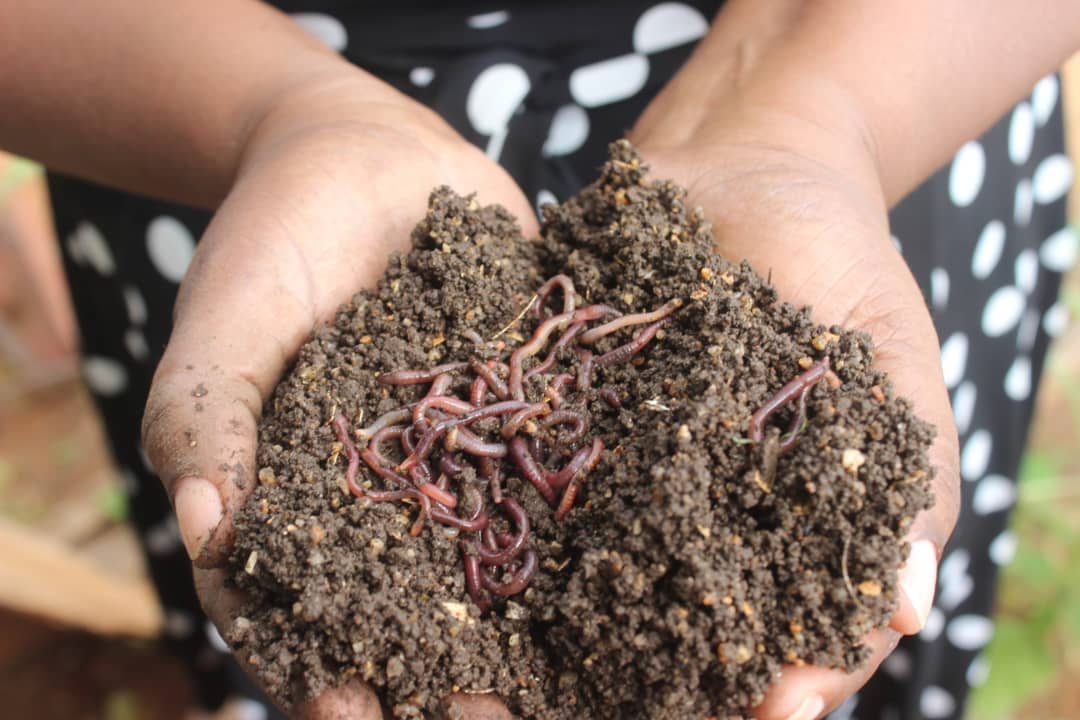They are regarded to serve and recondition the soil through their up and down movement in the soil, yet little is known or many people are unaware of the critical role that earthworms plays, let alone the concept of Vermiculture.
Worm farming also referred to as Vermiculture, is a simple but precision method of waste management and recycling of organic degradable material making use of worms as the vessels to quicken the decomposing process. The raising of earthworms within controlled condition is known as Vermiculture, while the method of producing the fertiliser by breeding and keeping earthworms is known as Vermicomposting.
At Worms “R” Us, they are striving to expand the horizon of worm farming within Namibia. Spearheaded by Wilma Gaweses and driven by the moto “Give back to soil to receive back”, Worms “R” Us is based in Otjozondjupa region, within Otjiwarongo. Wilma and her team farms with the Red Wiggler worms.
Red Wiggler worms
This type of earthworms are smaller in posture, they can live in a confined space and are faster in decomposing waste material. Currently, they are conducting their activities on a small scale level however they are intending to expand in the future and farm on a large scale level. Worm “R” Us practice container worm farming where they produce organic Vermicompost, also popularly known as worm-tea. This is produced from sieved final product of Vermicompost and used as an organic liquid fertilisers.
According to Wilma, earthworms have a very unique and divine purpose as they break down material which they will in return excrete good nutritious castings that is turned into compost. Wilma explains that, not every worm does damage to crops, in regard to earthworms they don`t even feed on alive roots, they only feed on decomposed material. That`s how smart they are, says Wilma.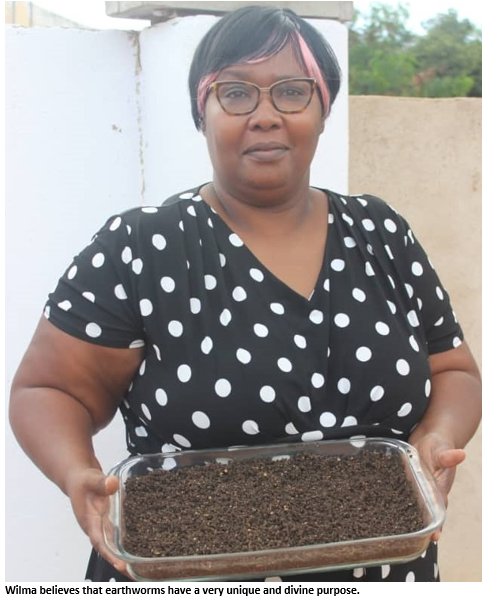
Role of earthworms within the soil
Earthworms plays a critical role in neutralising the soil fertility. They play a huge role underneath the soil as they create pores which helps in improving the drainage or rather the water holding capacity of the soil. This further helps in the transportation of nutrients to the roots for excellent absorption, which aids in feeding the plant and resulting in good growth. Underneath the soil, earthworms also helps in maintaining long-term sustainability of physical, chemical and biological properties of soil along with the fertility power of the soil.
Wilma stresses that, the worms should be kept away from too much direct sunlight. They have sensitive “skin” and can die when exposed to direct sunlight. The worm bins or beds needs to be kept moist (not too wet and not too dry).
Most importantly, worms don`t like acidic environment. That`s why, feeding the worms citrus fruits and cooked food is discouraged. In fact, these food can make the compost acidic and can also cause the compost to heat up, which in turn can kill the worms. Earthworms love moist environments hence, constant monitoring and taking of temperature is essentials to keep a healthy worm bin environment.
Horticulturist and gardeners that are interested in reconditioning and enhancing their soil through the principle and application of worm farming, should reach out towards Worms “R” Us. When people buy Vermicompost from us, it is full of earthworms’ cocoons, which helps in increasing worm activity in soil and further results in increasing the population of worms in the soil, says Wilma.
Vermicompost is rich in enzymes, valuable Vitamins, and hormones and more. In addition, Vermicompost is very much helpful in preventing soil erosion when applied as a topical mulch on garden and crop soil beds.
For those interested in Vermicompost, natural liquid fertilisers, earthworms and guidance on Vermiculture; reach out to Worm “R” Us at:
iwgawe@iway.na +264818678690

